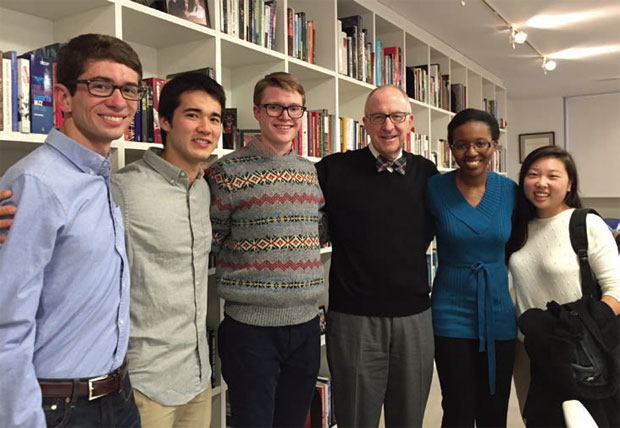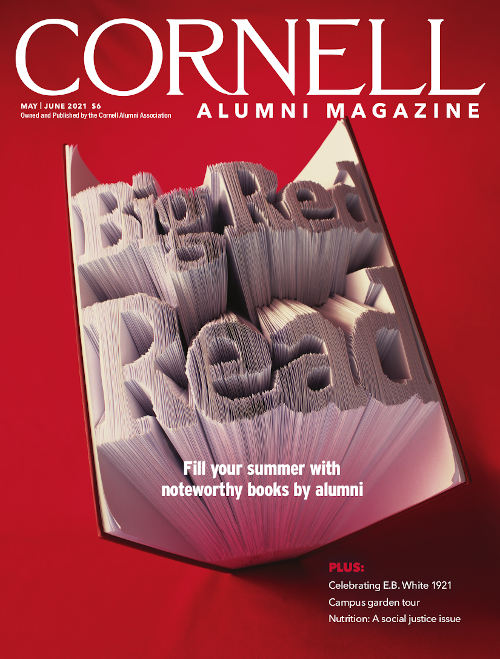
Open-door policy: Skorton with student visitors to his office hours. Photo: Pat Driscoll.
Over the years I have been at Cornell, my most important single goal has been to learn more about—and thus better serve—our large and diverse student body. No source of information about the student experience is more meaningful than the students themselves, but at a large, complex research university it can be difficult to learn from them in a personal way. For that reason, I’ve let students know that they can be in touch with me—by e-mail or in person, as time permits—and that I’ll do my best to listen, advise, encourage, and learn from them.
Each August, during my address to new students and their families, I give out my e-mail address and urge new students to contact me if they have not been able to find someone who can respond to their question or address a concern about their lives at Cornell. I may not know the answer, but I will direct their query to someone on my leadership team who is better able to help.
From my very first year at Cornell, I’ve also hosted periodic office hours—following the lead of Vice President for Student and Academic Services Susan Murphy ’73, PhD ’94—which are open to ten students (graduate, professional, and undergraduate). We always have an excellent turnout. We have advertised the office hours in advance, in the Daily Sun and in our Graduate School Announcements, which are sent to some 5,200 graduate and professional students each week, and we are exploring the use of official Cornell social media to get the word out more broadly. No two sessions of office hours are quite the same . . . although we always have cookies, and they always disappear!
Some groups, including those promoting sustainability, have made sure to have a representative—a different student each time—at virtually every office hours session to advocate for issues about which they feel strongly. Their views, along with guidance received from Cornell’s shared governance groups, have informed and often influenced our decisions on such issues as carbon neutrality, bottled water, sweatshops, and sexual violence.
Other students come to office hours with their own personal concerns; a fair number are aspiring physicians who want to ask me about my medical career and pick up tips for getting into medical school and for charting a career course. Still others come with absolutely no agenda other than wanting to meet the president and perhaps to take a “selfie” with me.
The unpredictability of the students’ backgrounds, issues, and ideas makes for a very interesting hour, as we all chat in my office. Students learn a lot from each other during these sessions—often finding intersecting circles of friends, complementary experiences and concerns, and ways to continue the conversation with each other once the session concludes.
And, of course, Vice President Murphy and I learn a great deal from the students. By the end of the hour, we have new insights about what students are thinking, what excites them about Cornell, what they would like us to do differently, and how they and their friends and associates might move the discussion forward.
Vice President Murphy and I will be hosting one more session of open office hours during the spring semester. And while Robin and I are looking forward to our move to Washington, D.C., next summer, when I become secretary of the Smithsonian Institution, I will truly miss these unscripted conversations with the amazing students who have taught me so much about Cornell.


